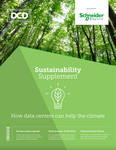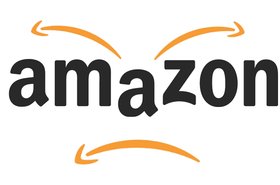Microsoft has launched a software-as-a-service carbon accounting service for customers, and restated its goal to be carbon negative, promising it will have "100 percent of our electricity consumption, 100 percent of the time, matched by zero carbon energy purchases" by 2030.
The Microsoft Cloud for Sustainability service, launched at the Microsoft Inspire virtual partner event, includes services that gather and integrate real time data to measure a company's emissions performance against goals, so companies can report their emissions from the cloud, including Scope 1 to Scope 3 emissions - i.e. including those caused by the supply chain.
More sustainable cloud
"Organizations need to be able to record their environmental footprint, report to stakeholders, reduce their resource usage, remove their footprint through carbon offsets or recycling and replace high-footprint resources with low-footprint ones," according to a blog post by Judson Althoff, chief commercial officer. "But doing this effectively means moving away from manually inputting data into spreadsheets, and toward a more seamless data flow via data connectors that provide automated, accurate, real-time data — and ultimately, turn those data-driven insights into action."
The SaaS service will "discover and connect to real-time data sources, accelerate data integration and reporting, provide accurate carbon accounting, measure performance against goals and enable intelligent insights for organizations to take more effective action," said Althoff, listing example use cases, including letting CIOs prepare a carbon accounting report for their company's cloud use, draw up a sustainability scorecard for customers which would include scope 1-3 emissions (from a company’s owned sources, emissions from purchased energy and all other emissions).
Azure customers will also be able to pinpoint specific emission areas, spotting lagging areas such as HVAC systems that don't meet prescribed targets, which can then be assigned as a task for operations engineers.
100/00/0 - the new name of the game
Finally, Microsoft says its new 100/00/0 formulation - "100 percent of our electricity consumption, 100 percent of the time, matched by zero carbon energy purchases by 2030" matches up with the vision the rest of the world should be following - a shift to electrification, coupled with greening of that supply.
"Every net-zero scenario that scientists and politicians play out shares a common, and essential, element: a massive increase in electrification," says another blog post, by Lucas Joppa, chief environmental officer and Noelle Walsh, CVP, Cloud Operations + Innovation. "Powering vehicles and manufacturing plants with electricity holds the promise of wiping out vast sections of the global emissions portfolio. But this only happens if the electrons supplying the electricity are generated from zero carbon energy sources (wind, solar, hydro, nuclear, or point-source carbon capture and sequestration) and then stored and transported to where they are needed.
"Unfortunately, this is not the way the world’s grids are set up. Most electrons flowing onto grids today come from carbon-intensive sources. Energy storage is extremely immature, and the grid infrastructure of today cannot efficiently respond to the varying production capabilities that zero carbon sources provide, nor the increasing consumption demands of a rapidly electrifying society."
Microsoft says 100/100/0 is its long-term vision for the world, but "we call this a vision because we alone can’t control the outcome. Like other users, our data centers and our offices around the world simply plug into the local grid, consuming energy from a vast pool of electrons generated from near and far, from a wide variety of sources. So while we can’t control how our energy is made, we can influence the way that we purchase our energy."
For that reason, Microsoft has come up with its own 100/100/0 commitment to demonstrate that it is doing its bit.
Of course, not all the compute power Microsoft's electrons enable will be helping the planet, and not every Cloud for Sustainability customer will be able to show a clean set of statistics. Microsoft Azure customers include Exxon, Shell, Halliburton, Total, and many other Big Oil players, whose activities have included maximizing the amount of fossil fuel they can extract for burning - and lying to the public about the consequences of that program.
A small number of Microsoft employees have protested about this, for instance picketing its corporate headquarters during the 2019 climate strike, holding “No Azure For Oil" signs. An employee asked CEO Satya Nadella about the ethics of supplying companies actively helping destroy the planet, at an all-staff meeting, but was told: “There’s no fossil fuel CEO who sits there and says, ‘You know, I’m just gonna deny climate change.'"




